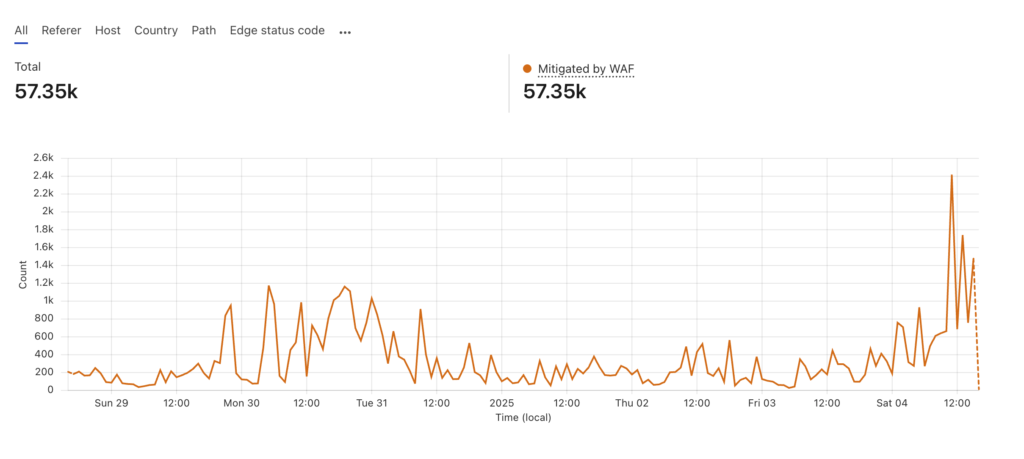Why Web Hosting Is Critical for Your Business Success
Choosing the right web hosting service isn’t just a technical decision—it’s a business one. It directly impacts performance, security, reliability, and user experience. Here’s what you need to know to make the right choice:
The Must-Have Features of a Good Host
1. Performance and Speed
A quality host ensures your website loads quickly, creating a better experience for visitors and improving your SEO rankings. Fast-loading sites reduce bounce rates and help you convert more customers.
Real Example: One of our clients came to us with a well-coded website but slow performance. After moving them to a better hosting provider and optimizing caching, their Google PageSpeed score jumped from 20 to 95, and loading times dropped significantly. It wasn’t their website—it was their host.
2. Reliability and Uptime
A website that’s frequently down sends a clear message to visitors—and Google—that it can’t be trusted. Reliable hosting minimizes downtime, keeping your website accessible and maintaining your reputation.
3. Security
Hackers are becoming more sophisticated, leveraging AI and data breaches to attack websites. It’s no longer just about brute force attempts but about using intelligent tactics to guess your passwords and exploit weaknesses.
Real Threat: Credentials stolen in a hack of a third-party website are often reused across multiple platforms. Hackers know this and use AI to iterate through likely variations of stolen passwords. For example, if the leaked password was “TheMapleLeafs1967,” we’ve observed attempts like “Maple67Stanley,” “67LeafsForever,” or “NHL1967Champs.” These aren’t random guesses—they’re targeted attempts based on patterns and logic.

Good hosting providers offer multiple layers of protection, including DDoS mitigation, malware scans, and login attempt monitoring. These safeguards are critical to prevent such attacks from succeeding.
4. Scalability
Your hosting needs to grow with your business. Whether you’re expecting a surge in traffic from a marketing campaign or planning to scale your operations long-term, a scalable hosting solution ensures smooth performance without unnecessary disruptions.
5. Support
Things go wrong sometimes. That’s why having responsive and knowledgeable customer support from your hosting provider is vital. Whether it’s downtime or a technical issue, good support minimizes disruptions and helps you get back online quickly.
Real-World Use Cases for Hosting Choices
- E-commerce Sites During High Traffic Events: Think Black Friday or holiday sales. Without a host that can handle traffic spikes, your site could crash, costing you thousands in lost revenue.
- Local Businesses: Even smaller websites need reliability. For example, a restaurant’s site going down on a Saturday night can lead to missed reservations and frustrated customers.
- Growing Startups: A startup might begin with shared hosting but quickly need VPS or managed WordPress hosting as traffic and resource demands grow.
- Portfolio Sites for Creatives: Photographers or designers need a host that delivers fast loading times for media-heavy pages without breaking the bank.
Matching Your Host to Your Needs: Don’t Overspend or Underspend
The key to hosting isn’t just finding the most expensive solution—it’s finding the right solution. Overspending on hosting for traffic levels you don’t yet have wastes money that could be used for marketing or growing your business.
On the other hand, underspending can be just as costly. If your host has frequent downtime or can’t handle your traffic, Google and other search engines may flag your site as unreliable and avoid sending traffic your way.
Pro Tip: Match your hosting solution to your website’s specific needs. For example:
- Small Traffic: Basic managed WordPress hosting might be enough.
- Moderate Traffic: VPS hosting with reliable caching options may work well.
- High Traffic: Managed hosting providers like Kinsta or a dedicated server are worth considering.
SEO and Hosting: A Hidden Connection
Hosting can influence your SEO rankings in ways many don’t realize. Search engines like Google prioritize websites that load quickly and are consistently available. Your server’s location and performance can also impact your site’s speed, which is a ranking factor. Investing in a reliable host ensures you’re not penalized in search results for factors beyond your control.
What to know BEFORE selecting a host.
- Website Type: E-commerce, blog, or portfolio?
- Traffic Levels: How many visitors do you expect?
- Required Features: Do you need backups, security, or advanced caching?
- Scalability: Will your hosting grow with your business?
- Budget: What’s your spending capacity without overcommitting or underspending?
Final Thought:
Your website is your digital storefront. Choosing the right hosting is like picking a location for your business: it needs to be reliable, secure, and fast. Spend wisely, invest in the right infrastructure, and you’ll set your website—and your business—up for success.

